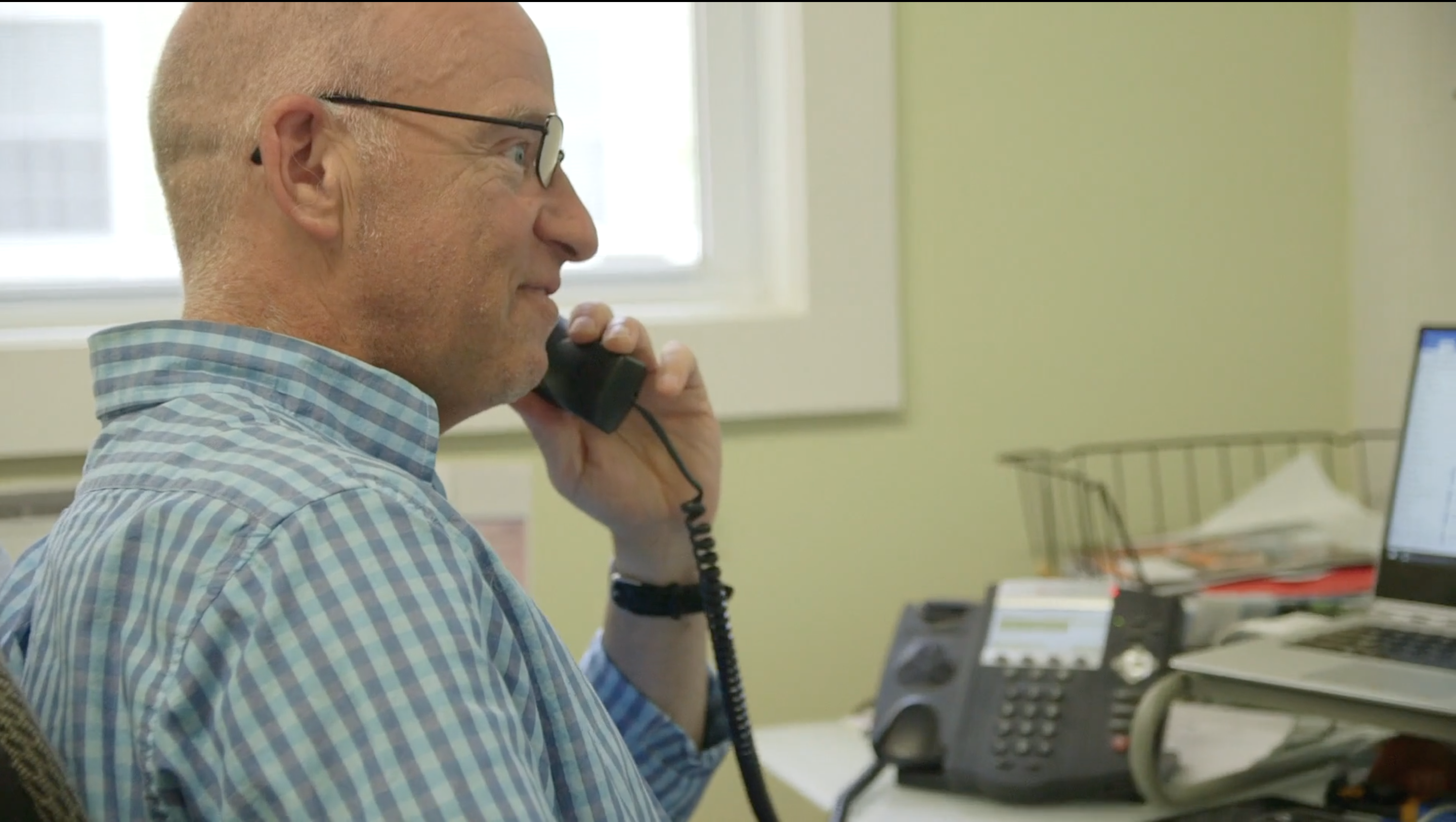Retail CIO, Robert Fort, believes that true partners have an in-depth understanding of your needs, consistently add value and, among other things, put skin in the game. DoubleCheck Research had the opportunity to sit down with Fort, former CIO of both Guitar Center and Virgin Megastores, while attending Demandware’s annual Xchange conference held in Miami this month. This two-part discussion focused on what makes for a strong solution partner and what pitfalls providers should avoid when looking to work with retail CIOs.
Fort focuses on seven important factors in forging a strong partner relationship:
- They understand my needs - "A good partner is a person who is basically trying to align themselves and what they have to offer with my business needs. They spend time to listen, get to know me, and examine my business challenges."
- They add value - "They have the ability, in a very unassuming way, to always be present adding value and, when needed, capable of showing me just how their solution aligns to my needs. They are a patient partner who understands that building a level of credibility leads to trust and ultimately business."
- They share wisdom - "What I also look for in that partnership is wisdom. Those partners I work closely with are on the pulse of what’s happening in retail. They are educators and share key information with me about important industry changes, innovations, and organizational moves. Above and beyond, what they’re selling they represent a tremendous value add to me.
There's a salesperson that used to just touch base with me about once a quarter. He was always very respectful of my time. We'd get together for lunch or sometimes just over the phone. He would primarily share what he saw in the industry and then spend the rest of the time listening to what I had going on. Often the conversations were simply informative with no specific follow-up. Other times he would call me up, and say ‘we're thinking of making a change to our road map, and I want your feedback as this might benefit you based on our last conversation’. He was just always a valued resource in that way. He ended up being the guy I could turn to, on the drop of a dime, when something happened in my business, and I needed someone with knowledge and who could make things happen…”
- They jump in with me - "The real partners are the ones that are spending time to jump in and run alongside me. They have a way of showing that they care about my business and are generally supportive. Those are the partners I can just call and say, 'Hey, I'm thinking of this. What do you think?' Eventually, a transaction comes out of it."
- They stick around - "Far too often, the retail CIOs pre-sale experience is not tantamount to their client experience post-sale. Smart partners recognize that they need to match the efforts retailers make to provide a consistent experience across the channels. When my business is awarded, they show accountability by ensuring what has been promised is delivered. The really good salespeople remains a constant presence throughout the lifecycle of our relationship, whether there is an opportunity on the table or not. When you have that partner, they get repeat business from me."
- They treat me like I treat my customers - "The number one thing I like about retail is that everything we do in the store and retail environment is focused on trying to build and maintain a strong relationship with our customers. The experience we provide at every step must be representative of our brand promise. If we do not fulfill that promise, we lose customers. While I was the CIO of Virgin Megastores, my CEO made the perfect analogy to technology. He said, '…technology in a store that's not working is worse than not having that technology at all…' It is a wise point. The good partners understand this and know that their promise directly ties me to the promise I have made to my customers."
- They put skin in the game - "This area can be a bit tricky. Ideally, you would like your partners to benefit from your success and feel your pain. This is a hot area in which I have many conversations. If I’m committed to you and your solution, I want to know that you have a vested interest in the relationship and its success and benefits. If I buy what you’re selling and you do not follow through, I’m left holding the bag. I think the vendor community needs the confidence to ensure their sales folks are not over-extending what their brand can really represent. I’m seeing a shift especially where some providers are offering more flexible models such as revenue share. I believe this is a step in the right direction."
When asked what retail solution providers should directly avoid as they’re vying for the retail CIOs business, Fort covered 5 key areas of opportunity:
- Avoid getting confused by whose timeline is more important - theirs or mine? - "Often after the first meeting, a salesperson says, 'based on your challenges, you're going to need this solution that I sell'. I often respond by saying, 'That's great. I agree. I will need such a solution although I’m not quite ready for it yet'. A good partner will do one of two things - either respect my timeline and work to add value until the time when I’m ready, or present me with a well thought-out compelling argument about why now could be the right time for me. Unfortunately, more times than not, we end up in a much different place where the salesperson is not focused on my best interests but working to close the deal based on their internal quota and timeline."
- Avoid throwing out incentives at the wrong time - "In an effort to move a deal forward, salespeople will often present me with a 'special' on-time offer. Here’s the problem. Any savvy buyer knows that special offers are simply the seller showing the buyer just how much they can bend. If they’re able to bend today, more times than not, they’re able to bend tomorrow making their 'special offer' not so special after all. Rest assured savvy buyers will hold their salesperson to that special deal when the time comes for them to move forward."
- Provide a closed loop feedback process - "Unfortunately, I find more often than not, feedback falls on deaf ears. I've seen some companies take steps in the right direction through customer satisfaction surveys. Commonly, the issue is that it’s usually my account rep that conducts the survey, typically because they ran the sale cycle. I don't see much connection to other parts of the organization, including services and support. There is seldom a closed loop process to share what actions have been taken, if any, based on the feedback I have provided."
- Avoid moving people in and out of an account – "Specifically, what I'm looking for is consistency throughout my experience. I’m looking for that person who knows what they’re talking about, knows me and my business, and can help guide me through their internal resources. They might not have all the answers, but they’re quick to connect me with the right people, such as specialists, at the right time."
- Respect the process - "I had put together a team to evaluate a new POS system. The team included a combination of business and technology folks. They pulled together all of our business requirements and put an RFP out to bid. The team created a shortlist of four providers.
I’ll never forget the sales exec from one provider. He was a bit aggressive and insisted on knowing our buying process. My Director of IT was the project lead. He was very transparent regarding our process and decision date, so this guy's insistence and lack of patience were just stunning to me. As I remember it, this guy was calling someone new in our organization on an almost daily basis. Eventually, the salesperson started jumping over people and called me directly. When I spoke with him, I let him know that I was a bit incensed that he decided to jump over the people I empowered with the responsibility to lead this project. With that said I don't mind a constructive phone call if there’s an issue or our thinking may be off base. This guy was not looking to provide constructive feedback. He wanted an answer. I reiterated to him, 'Here's the situation, I'm sure that's what was already spelled out to you' and I shared our process. I asked him if that was what already you heard. He said, 'Well, yes.' Believe it or not, the same guy called a couple of days later to tell me he still had not heard anything. I reiterated our decision date was not for another month, and he replied, 'Are you really going to take that long?' To add insult to injury, he added, 'Well I'm not feeling the love'. I don't remember exactly what my reaction was. I do know I hung up the phone on him, but other than what I said in the midst of the conversation I don't remember because I was just so appalled."
What is one final piece of advice for the sales community?
"Don't just show up, start selling, and expect the deal to fall into your lap! These things take a while, and those who are patient partners work on getting to know me first, listen to my business challenges, and match their solution at the right time. They have the best shot."
Did you enjoy this blog article? Check out some of our other awesome content.


